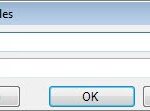Comparing strings in C is a fundamental operation used in various applications, from password validation to data processing. While the == operator might seem like the intuitive choice for comparison, it doesn’t work as expected with strings in C. This article explores why and delves into the correct methods for string comparison in C, including the strcmp() function and manual character-by-character comparisons.
Why == Doesn’t Work for String Comparison in C
In C, strings are represented as arrays of characters terminated by a null character (”). The == operator, when used with string variables, actually compares the memory addresses where the strings are stored, not the content of the strings themselves. This means that even if two strings have the same characters, the == operator will return false if they reside at different memory locations.
(Image alt: Diagram illustrating two strings “hello” stored at different memory locations. The == operator compares the memory addresses, not the string content.)
The strcmp() Function: The Correct Way to Compare Strings
The standard C library provides the strcmp() function specifically for string comparison. strcmp() compares two strings character by character, considering their ASCII values. It returns:
- 0: if the strings are identical.
- A negative value: if the first string lexicographically precedes the second string.
- A positive value: if the first string lexicographically follows the second string.
Here’s how to use strcmp():
#include <stdio.h>
#include <string.h>
int main() {
char str1[] = "hello";
char str2[] = "hello";
char str3[] = "world";
if (strcmp(str1, str2) == 0) {
printf("str1 and str2 are equaln");
}
if (strcmp(str1, str3) != 0) {
printf("str1 and str3 are not equaln");
}
return 0;
}(Image alt: C code snippet demonstrating the usage of the strcmp() function to compare three different strings.)
Manual Character-by-Character Comparison
Alternatively, you can compare strings manually by iterating through each character:
#include <stdio.h>
int compareStrings(char *str1, char *str2) {
int i = 0;
while (str1[i] != '' && str2[i] != '') {
if (str1[i] != str2[i]) {
return str1[i] - str2[i];
}
i++;
}
return str1[i] - str2[i]; // Handle cases where one string is a prefix of the other
}(Image alt: C code demonstrating a custom function for manual string comparison using a while loop and character-by-character comparison.)
Conclusion
Using the == operator to compare strings in C leads to incorrect results due to memory address comparison. The strcmp() function provides a reliable and efficient method for lexicographical string comparison. Manual character-by-character comparison offers more control but requires careful implementation to handle various scenarios, including strings of different lengths. Understanding these methods is essential for writing correct and robust C programs that involve string manipulation.
